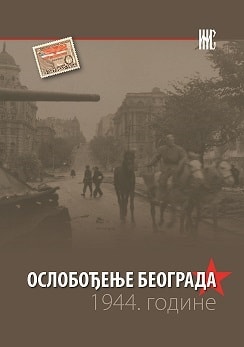Совјетска помоћ међународном признању Народноослободилачког покрета на крају Другог светског рата
Soviet Aid toward International Recognition of the People’s Liberation Movement at the End of WWII
Author(s): Milan Terzić
Subject(s): Civil Society, Political history, Social history, International relations/trade, WW II and following years (1940 - 1949), History of Communism
Published by: Institut za noviju istoriju Srbije
Keywords: War; international recognition; USSR; Yugoslav Royal Government; NKOJ; Tito; Draža Mihajlović; help; aid;
Summary/Abstract: There is no doubt about the help USSR lent to the People’s Liberation Movement in the struggle for international recognition of changes which came about in Yugoslavia during WWII. USSR and its leader Stalin were not willing to side unreservedly with the Communist movement in Yugoslavia since they didn’t want to spoil their relations with the Western Allies. They were directing the Yugoslav Communists to reach a compromise with the royal Yugoslav government. As shown by the partisan military diplomacy, it was through a compromise that the common government (the National Committee of Liberation of Yugoslavia and the royal Yugoslav government) was built at the end of the war. However, one shouldn’t forget the independence of the Yugoslav movement and its leader J.B. Tito. The autochthonous Yugoslav military power which developed during the war in Yugoslavia, deserves special mention. The Yugoslav leader J.B. Tito learned exactly at that time what the interests of the world politics were. He would prove his self–assuredness later on by clashing with Stalin and USSR and by putting into question the unity of the Communist East.
Book: Ослобођење Београда 1944.
- Page Range: 239-246
- Page Count: 8
- Publication Year: 2010
- Language: Serbian
- Content File-PDF

